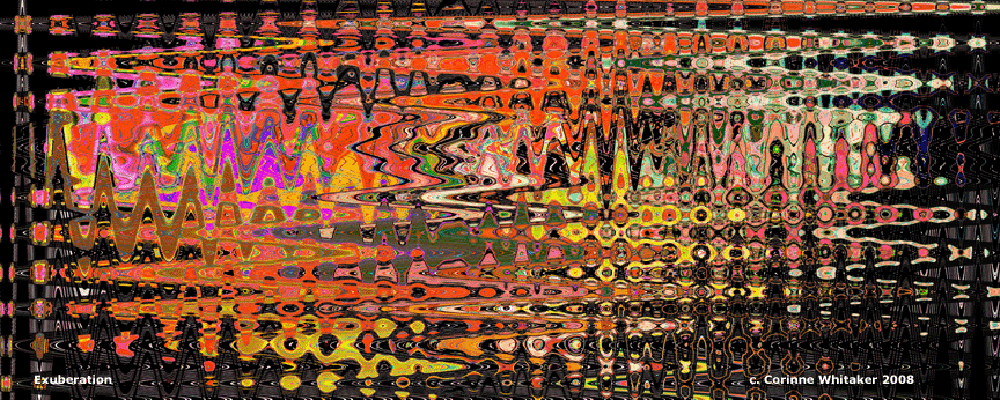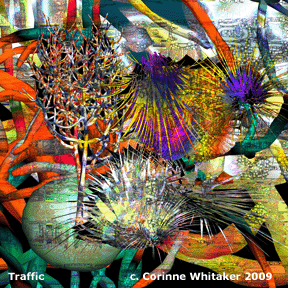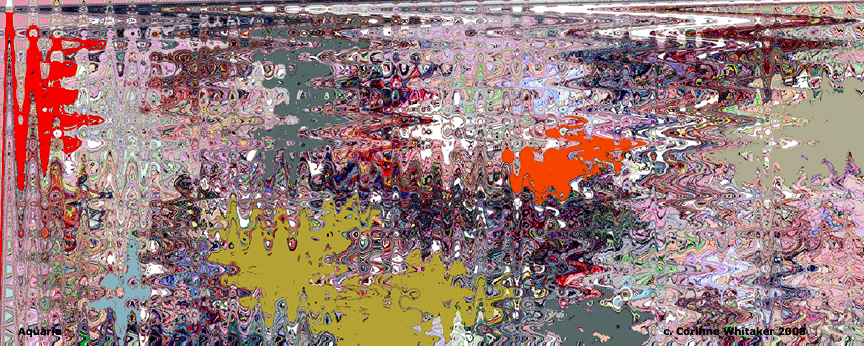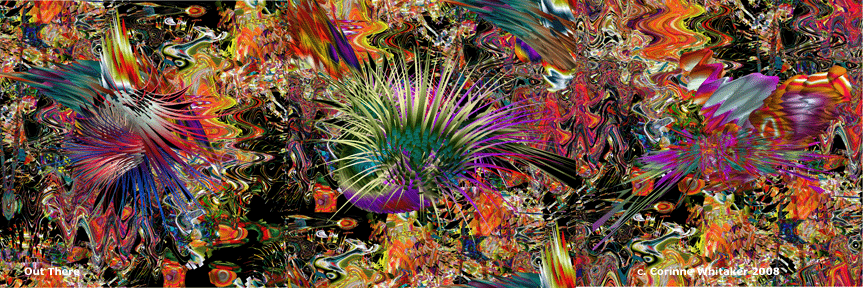
Wield or Yield?

They called the exhibit "Control". Most of the artists tended to focus on how men have attempted to control women over the centuries. Indeed, the announcement card included these quotes, all provided by the Guerrilla Girls West who juried the show:
Pythagoras (ca 500 BC): There is a good principle which created order, light and man,
and an evil principle which created chaos, darkness and woman.
Confucius: Such is the stupidity of woman's character that it is incumbent upon her, in every
particular, to distrust herself and obey her husband.
Talmud, Sotah 3:4 (circa AD 1501): The words of the Torah should be burned rather than
taught to women.
Jean Jacques Rousseau: Women have, in general, no love of any art; they have no proper
knowledge of any, and they have no genius.
Leo Tolstoy: Clearly all disasters, or an enormous proportion of them, are due to the
dissoluteness of women.
Consider this bit of stagecraft:
Curtain rises on Jane and Dick. Dick is angry (because the horizon is crooked and it's Jane's fault). Dick says "Shit". Jane says "Where?" (Backstage notes: Dick is wealthy. Dick has political power. Dick is physically stronger.)

Did the curator, whom I respect, attempt to control the visual dialogue by steering it in the direction of gender discrimination? Some of us chose to interpret the theme otherwise: my own piece, titled "Traffic", appends this brief statement:
Circulation... Navigation... Population... Stimulation.
All gone wild.
All out of control.
Control implies power for some and a sense of helplessness for some others. Bullies relish control to hide the emptiness they fear lurking within. Control of humanity's major religions has rested almost exclusively with men, along with privilege, panoply, costume and pageantry. The Gold Button obsession, I call it. What happens when those in control lose their Gold Buttons, along with their private planes, multiple mansions, gargantuan bonuses, and kowtowing maitres d'? Do relationships always have to be based on one party controlling another? Can societies exist in tandem, or does our DNA contain a command line to wield or yield?
Think about control the next time you engage in conversation. Who controls the flow of ideas? The ethics of subject matter? The tone of voice, the delicacy or coarseness of language? The rhythm of stopping and starting? Do corporations exert a noxious control over their employees? Is a benevolent corporation an oxymoron? How much control do we have to relinquish in order to survive?

What about body control - shape, size, configuration? How does fashion, via the advertising medium, attempt to control how we present ourselves to the world, how we view ourselves as out-of or in-sync-with the current fad? In the revolving door of fashion are we exhorted to change or be dissed/dismissed? At one time, in some parts of tribal Africa, the woman with rolls of fat under her chin was held up as an exemplar for male prowess - her amplitude mirrored his ability to feed her well. Are women's bodies still used as mirrors for male narcissism? In a current exhibit called "Open Anti-Bodies", the curator characterizes the Olympics as a political event: "Anti-Bodies refers to the way in which the Olympics applies to the ideal model of the athlete to the state striving for supremacy in the sporting arena, with the athlete becoming an emblem of state identity and a metaphor for political wellbeing. (This) is an opportunity to unpack the way in which the Olympics refers to a fantasy of universalism (a Western concept based upon the ideal of common shared values), based upon the model of the ideal body, which can work as a kind of cultural imperialism."
Do some women need a controlling mate for security, someone who seems to be strong and protective, a solid rock in an uncertain world? Is this a need that becomes toxic? Do we need religion to assure us that death can be controlled rather than annihilating? Do we need Kings and Presidents and Potentates to reassure ourselves that some one or some thing wise and powerful is in charge? Think of the Internet as an alternate Universe which we control with an on/off switch. But "off" simply removes us from the equation: the Internet rolls on. Will there one day be a Church of the Internet? If we fail to attend will we get a penance of ten gigabytes loss of memory?
Maybe control is our moral gravity, preventing us, we hope, from falling into a speculative abyss, from asking, as Kevin Kelly does, "Are we playing in a game where all the rules are constantly being rewritten?" How do astronauts feel when floating around in a capsule: have you ever been hit in the face with a dollop of toothpaste? What would happen if one billion, three hundred and thirty million Chinese suddenly found themselves without a strong central government? Can we really survive in a world with no controls? Can we even imagine it? If not, are we forever trapped between wield and yield?

Control can be a good thing, right? We have control towers and traffic controls. We want to control our children and our appetites, not to mention our politicians. We gravitate to diets, budgets, how-to-do-it sources. If someone else is in charge then she/he is responsible for failure. Is that really what control is all about: needing to blame an Other when life turns dark? Being unwilling to take responsibility ourselves? Or worse, being terrified to consider that the wheel of life might turn erratically, without pattern, without design?
As for myself, I have a difficult time trying to find the right questions. Whatever answers there are must lie in another dimension. No wield. No yield. Only be.
c. Corinne Whitaker 2009